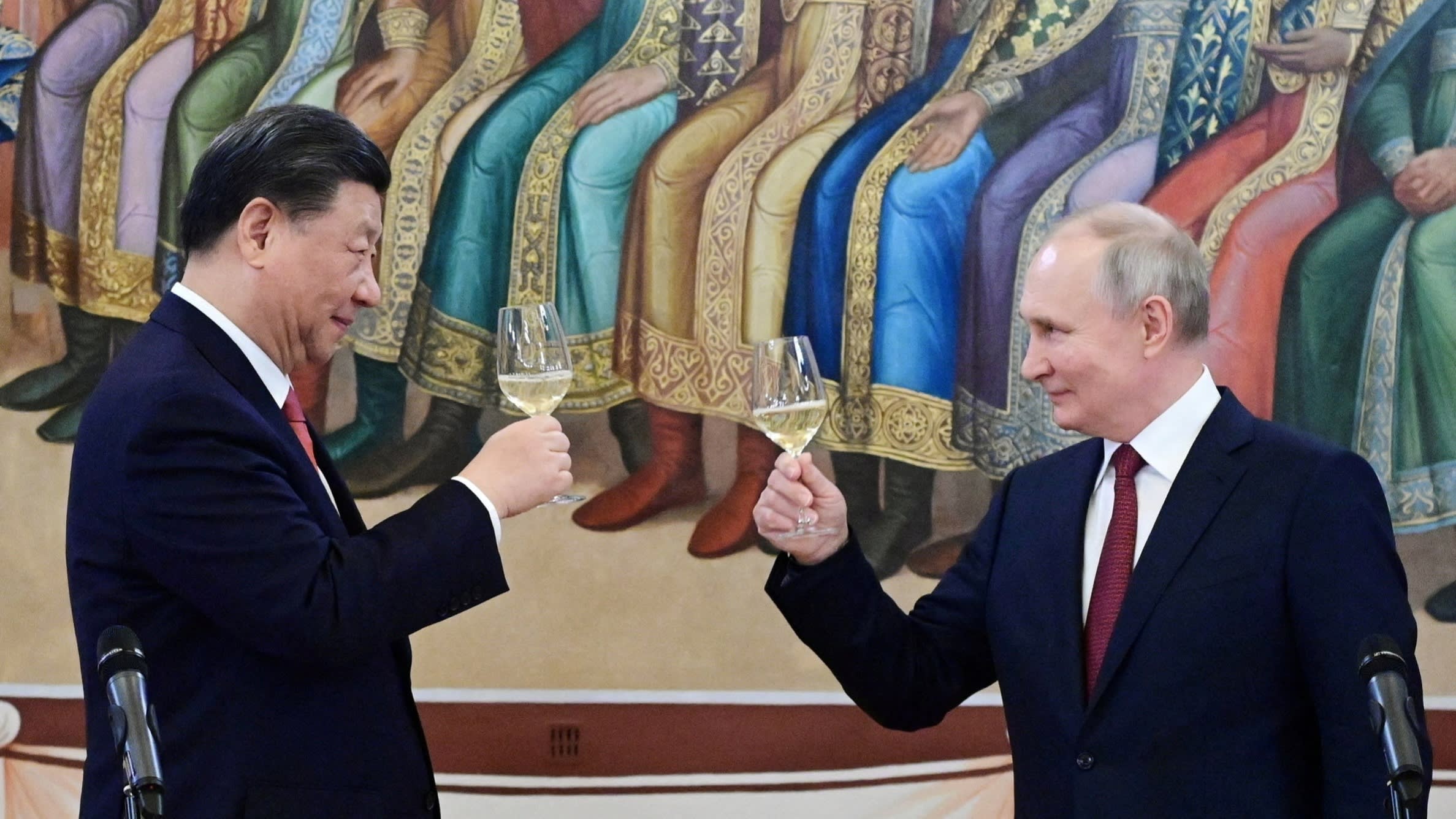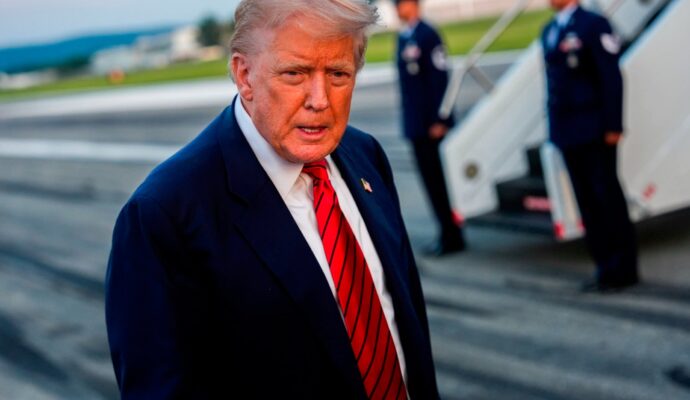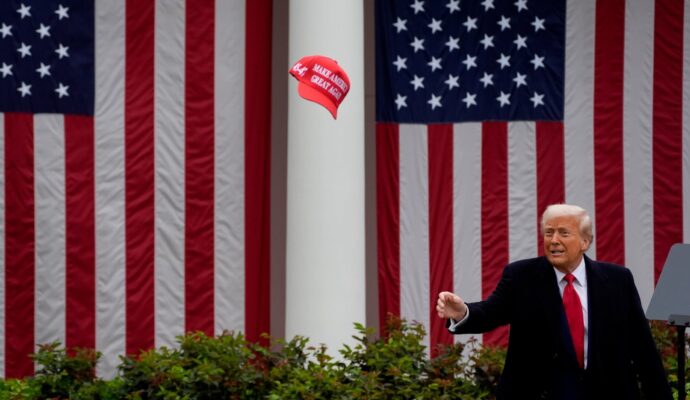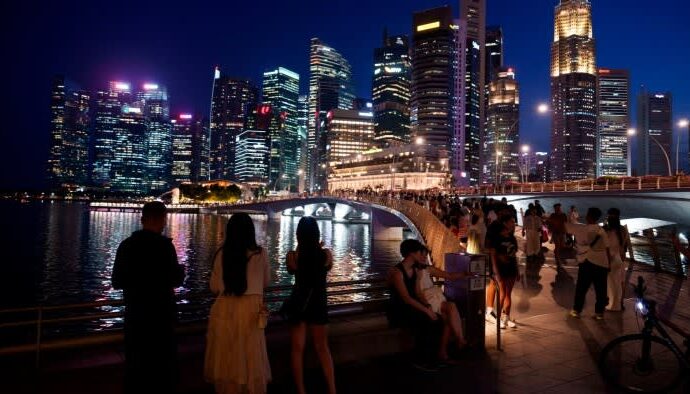
Stay informed with free updates
Simply sign up to the Geopolitics myFT Digest — delivered directly to your inbox.
The writer is director of the Carnegie Russia Eurasia Center in Berlin
“There are changes happening, the likes of which we haven’t seen for 100 years. And we are the ones driving these changes together,” Chinese President Xi Jinping said as he took leave of Russian President Vladimir Putin in the Kremlin back in March 2023.
As Putin and Xi embark on a four-day summit that begins on Wednesday in Moscow, they can be satisfied that those changes have indeed materialised, even if driven in part by the disruptive presidency of Donald Trump.
The world is at an inflection point, and Beijing and Moscow are poised to be the major beneficiaries of America’s self-inflicted blow to its global stature. Now Putin and Xi need only strategise about how to capitalise on this historic moment and ensure that the demise of US hegemony is irreversible.
Two years ago, when Xi last visited Moscow, it was to communicate his decision not to abandon Putin; instead, he chose to clandestinely support Russia’s war against Ukraine. At the time, that seemed a risky bet. Russian troops had taken a beating in Ukraine thanks in part to significant US assistance, Kyiv was preparing a counteroffensive, and many in the west had got carried away with hopes of Russia’s imminent defeat and humiliation.
Xi unlocked a flow of dual-use goods like sophisticated chips and advanced machine tools that have helped to fix Russia’s battered military industrial complex, and China has made additional room for Russian commodities in its giant markets, allowing Moscow to earn much-needed export revenues. As a result, the Kremlin has managed to bolster its military machine and put the Russian economy on a war footing. China, meanwhile, has gained improved access to cheap hydrocarbons, metals, fertilisers and agricultural goods; cutting-edge battle-tested Russian weaponry; and Russian tech talent kicked out of western labs.
For both China and Russia, this war-induced investment in their decades-long relationship has paid off massively — even if Moscow has had to accept deeper dependence on its neighbour and Beijing has had to stomach worsening ties with Europe. But now Xi and Putin could reap even greater profits. With Trump enthusiastically shattering the remains of the US-led order, they are unlikely to remain bystanders.
First, Beijing and Moscow have learnt a great deal about how to inoculate themselves against Washington’s weaponisation of its technological and financial dominance. Russia’s ability to wage a costly war, despite a tsunami of western sanctions, is the best showcase for China’s America-proofing methods — be it reliance on the renminbi for payments and savings, or embracing Chinese tech. Moscow and Beijing are likely to aggressively market these tools, first and foremost in the global south, including through Brics — and, with his global tariff war, Trump has become their unwitting salesman.
Second, Xi and Putin have said for more than a decade that the western brand of democracy is far from perfect. What better testament to that than Trump’s re-election? At least for now, China can claim that its system offers certainty and a long-term view that is glaringly absent in Trump’s America.
The widespread belief in democracy’s superiority over other systems of governance has long been a powerful transformative force and source of US power. It contributed, for example, to the demise of the Soviet Union, which was a traumatic experience for both Putin and Xi. If that belief is eroded, it will be a major victory for Moscow and Beijing.
Finally, Trump’s hollowing out of US bureaucracies, including the state and defence departments and the intelligence community, along with the alienation of key US allies, could weaken China’s and Russia’s arch-nemesis beyond repair at a time when their own military and intelligence machines are being rapidly beefed up.
Right now Beijing is going around the world scouting for projects abandoned by the dismantled USAID in order to boost China’s global soft power, and trying to woo America’s former friends into new trade and investment deals. In a darker alternative future, Xi and Putin — both in their early seventies — may see the coming years as a chance to cement their legacies by making decisions that could immortalise them in history, including redrawing the world’s map even further now that the old order is gone and America is busy sorting out its own mess.
The time the two leaders spend together this week may or may not end up in the history books. What’s certain is that if Trump’s idea was to drive Xi and Putin apart, as he has bragged, his second presidency is pushing them even closer.


